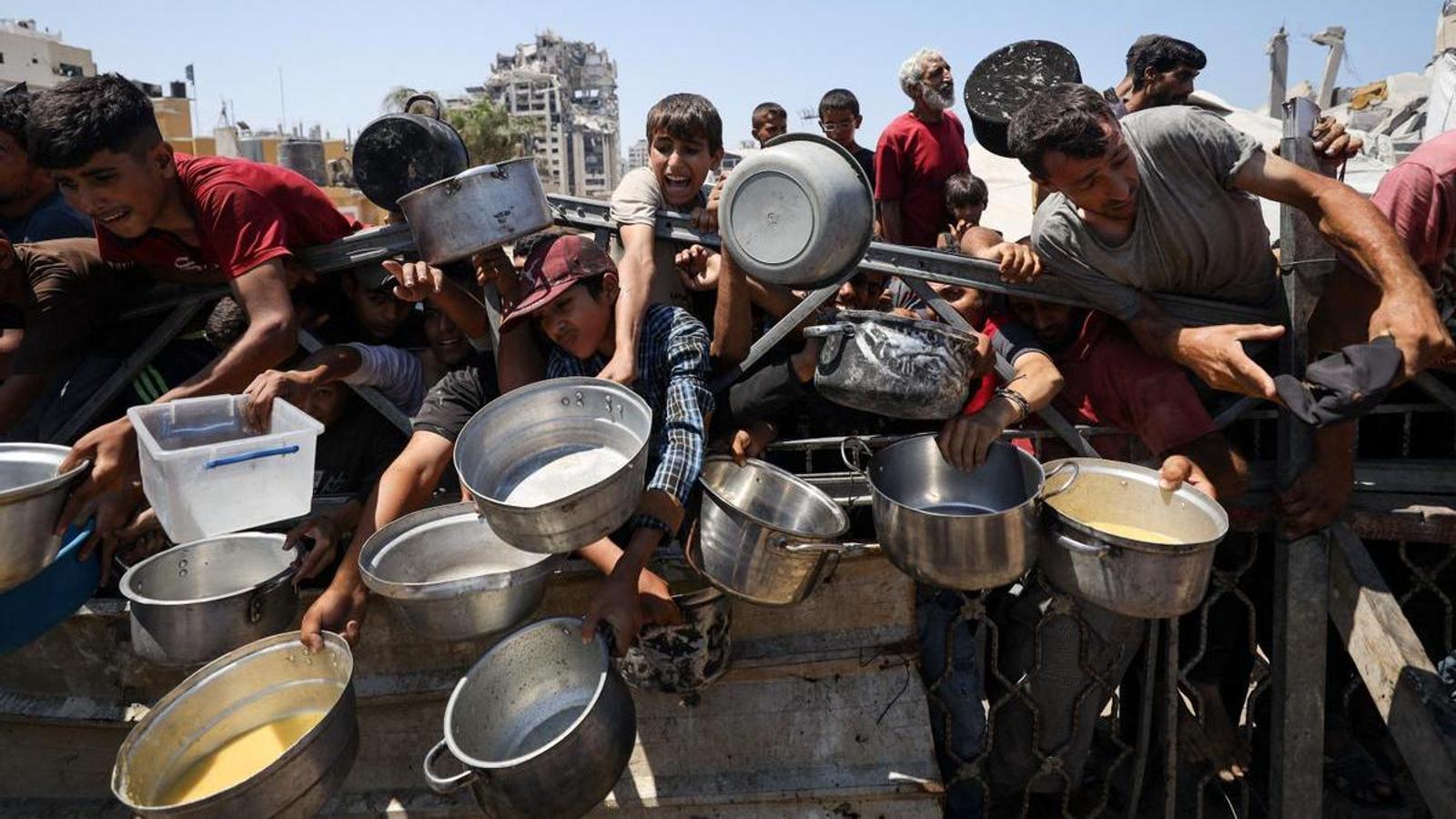"Our journalists can't eat or feed their families": Major international news agencies warn of hunger in Gaza
Hamas responds to US ceasefire proposal by calling for more humanitarian aid


BarcelonaAfter months of silence regarding the news blockade imposed by Israel on Gaza, preventing access to the independent international press, the major international news agencies issued a joint statement on Thursday warning that hunger is affecting their local teams in the Strip. The Associated Press, AFP, Reuters, and also the BBC news channel declared themselves "extremely concerned" for their journalists in Gaza, who "cannot eat or feed their families." The statement comes after More than a hundred international humanitarian organizations have warned of the hunger that Israel is causing in the Strip.
They also recall that "for many months these independent journalists have been the eyes and ears of the world on the ground in Gaza." They note that "they now face the same terrible circumstances as the people whose stories they cover." They urge the Israeli authorities to allow journalists to enter and leave the Strip and also to ensure that "the necessary food supplies" reach the people.
Gaza has become the place in the world where the most journalists have been killed, up to 231 according to the Gaza authorities' count. This is the result not only of the indiscriminate nature of the bombing in Israel's genocidal operation, but also of the targeted killings of journalists who were identified and threatened by the Israeli army, accused without evidence of being "terrorists."
In fact, just this Thursday, Sara Qudah, regional director of MENA, a professional organization of journalists dedicated to supporting the community of journalists of Arab, Middle Eastern and North African heritage, spread this message: "We are deeply alarmed by the repeated threats against Al Jazeera's Gaza correspondent, Anas Al Sharif, and we call on the international community to protect him. She added: "These latest baseless accusations represent an attempt to manufacture consent to kill Al Sharif."
France-Presse has published a video by its cameraman, Youssef Hassouna, in which he explains from Gaza City the difficulties he faces in continuing his work due to hunger, the lack of drinking water, and the destruction of the health system. He explains that he has lost 40 kilos and that it takes him five or six hours each day to get water or that he has to walk up to 25 kilometers to reach the sites of attacks because there is no fuel. He also confesses that many Palestinians do not want to be approached wearing bulletproof vests for fear of being bombed for being next to a journalist. "I have a message," says Hassouna, "We Palestinians want to live in peace. There are no winners in this war."
AFP issued its own statement on Wednesday warning of the "unsustainable" situation of its staff in the Strip. "For months, we have watched helplessly as their living conditions deteriorated. And now they are in an unsustainable situation, despite their exemplary courage, professional commitment, and resilience." AFP called for the evacuation of its Palestinian staff in Gaza and their families: "Since AFP was founded in August 1944, we have lost journalists in conflicts, we have had colleagues wounded and imprisoned, but none of us can remember ever seeing a colleague die of hunger."
